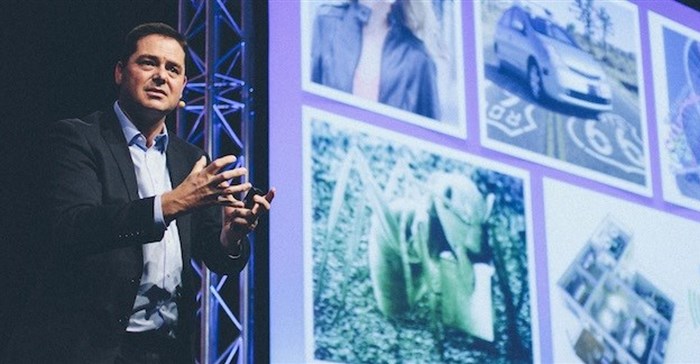
Top stories






More news











Currently we're seeing deep structural change where the shift in one industry ripples around the entire globe, Graeme Codrington, futurist and CEO of TomorrowToday told delegates at the Qlik Southern Africa Summit 2017 that took place at the Sandton Convention Centre on Thursday, 2 February.

Three or four significant things will change our world, he says.
The first is how and where we get our energy from. “Fifteen years from now energy will be free in many parts of the world. New technologies will deliver energy at remarkable speed and prices are already being developed.”
One such technology is ITER, which will be the first fusion device to produce net energy. For example it will produce 500mW of energy from 50mW of energy through self-replication, like the sun does. It's due to come online in 2027.
Batteries are another technology that will change our world. Batteries store energy and Elon Musk is working on this. Already his can drive 600km on batteries that only take 15 minutes to charge! Bill Gates, together with others, has formed the Breakthrough Energy Coalition which invests in new energies.
Because of the ripple effect. “Not only does a world with no energy costs remove 20% of costs, adding that percentage to GDP, but if there is no energy problem, then there is no water problem because we can literally make water and if we solve our water problems then we can solve our food problems.”
All these key constraints on the world's economy could be removed in the next 10 to 15 years.
It's not just technology that's changing the world. One of the mega trends in the world is longevity. We will all live longer. Today many people are living to 100 years old, and nearly half a million people are 100 years or more. In South Africa 15,000 people are 100 years or older, and every day 1,000 people turn 100.
Furthermore, 80 is easily achieved and many will make it to 100 (most of our children will make 100). This year’s matrics will live beyond 100 to 110 or even 120.
This has to do with many things, for example genetic sequencing. By knowing where you come from and who you are, your doctor can treat you accordingly. Robotic, wearable healthcare, etc. will dramatically expand our lifespan. But no one wants to be older; everyone wants to be younger, so we will need to take care of ourselves.
If we're going to live 40 years longer, then retiring at 60 becomes tricky, so we cannot think about retirement like we use to.
This links to his final big trend: work. In 10 to 15 years half of us will not have jobs, he says. “We will not have employment like we have it now. We will not be responsible to one employer, but work on demand and contract, so the way we engage in employment will be very different.”
Any task that can be done at a digital distance can be done by someone online, and we need to realise that there are certain ones that can be automated. The tasks that require human skill is where we will – and must – deliver our value.
The problem is that we can – and do – often miss these turning points, he says. “This is because we're not always looking around us to see the big unprecedented happenings. Our brains are not tuned in to the these and the concept of exponential change, but to small changes. As a result, when everything happens and changes, we suffer. We need to switch on our radar by lifting up our heads from our work to see what's happening.”
